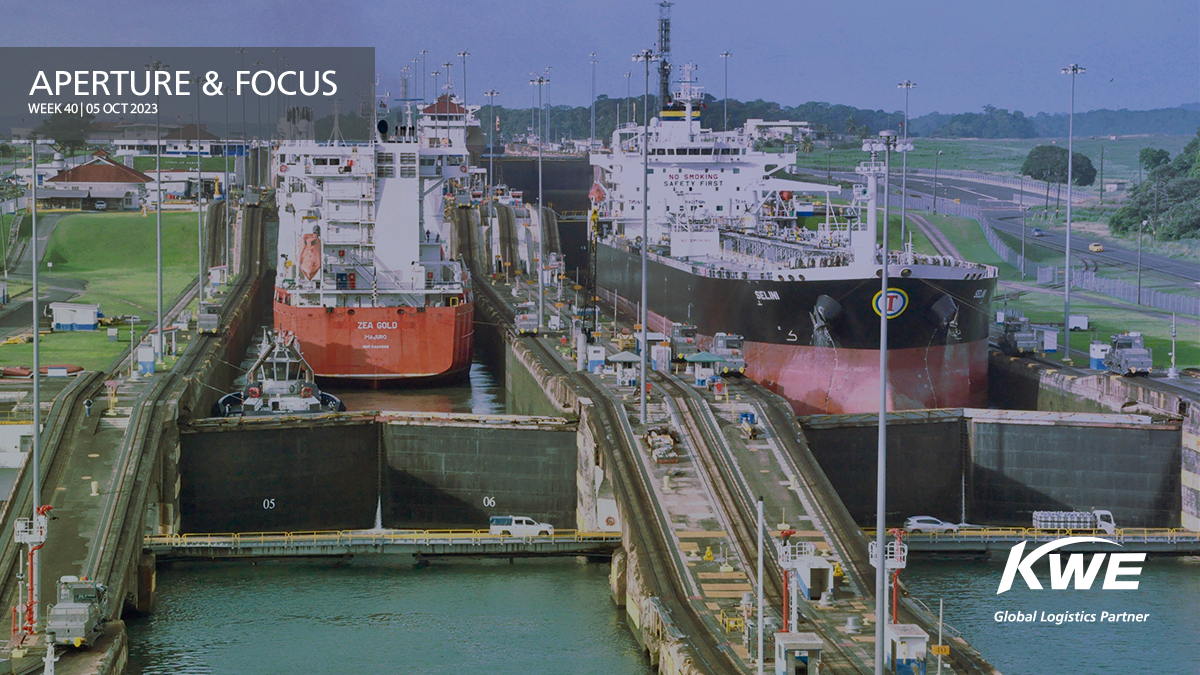Quote
Aperture & Focus 2023: Week 40

Global Aperture
The United Nations Conference on Trade and Development (UNCTAD) has issued a forecast predicting "stalling and divergent" global economic growth in 2024, with a slight increase from 2.4% in 2023 to 2.5%. At the center of this predicted stagnation is the fragile economic situation in Europe, where falling wages, fiscal austerity, and flat investment are contributing to a potential recession in the eurozone, which could have global implications. The United Nations forecasting team also highlights concerns about the precarious state of the world economy, including an optimistic projection and significant economic headwinds in the United States, particularly regarding issues like the United Auto Workers (UAW) strike, tightening credit, and potential federal government shutdown threats due to US Congress's failure to provide funding for the fiscal year.
The ongoing drought at the Panama Canal has once again led authorities to reduce daily vessel transits from 32 to 31— down from the 40 ships that would normally traverse outside of drought conditions. Additional rules that will include new schedules for the separate passages in the canal and reservation quota caps are set to take effect November 1.
Regional Focus
Americas
USA: The lower Mississippi River has reached near-historic low water levels, just inches above its all-time low, hampering the transportation of export-bound corn and soybean barges during the busiest U.S. grain export season. The disruptions this has caused come at a challenging time, making U.S. grain exports less competitive globally with new harvests flooding the market and stiff competition from Brazil.
Mexico: Congestion issues that have been ongoing for more than three months came to a head at the Port of Lazaro Cardenas when Hapag-Lloyd issued a customer advisory warning of cargo delays on September 29, highlighting the infrastructure challenges that have continued to impede traffic. Issues first began in the aftermath of trucker protests that took place during the month of August, resulting in a pile-up of more than 5,000 containers left stranded at the port. Rail system issues and a surge in car shipments have exacerbated these issues as cargo throughput at this and surrounding ports continues to decline.
Asia-Pacific
Malaysia: The Malaysian Port of Tanjung Pelepas (PTP) has been chosen to participate in the Partnerships for Infrastructure (P4I) initiative, a government-to-government decarbonization scheme between Malaysia and Australia. PTP aims to become a green bunkering hub for alternative fuels, with a focus on methanol as the preferred green fuel option, according to a study conducted by the Australian Government's P4I.
India: In the latest development regarding the India- Middle East- Europe Economic Corridor (IMEEC), India’s Ministry of Ports, Shipping, and Waterways has planned new development projects to enhance port capabilities for three west coast ports that will be included in the corridor: Nhava Sheva, Mundra, and Deendayal Port Authority. This is part of a larger initiative to enhance road, rail, and maritime capabilities between India, Europe, and the Middle East.
Europe, Middle East & Africa
Sweden: Sweden's Port of Kapellskär has implemented the country's first “automooring” system with vacuum technology, enhancing mooring efficiency and sustainability even further along with the enhanced shore power capability the port has already introduced. The system, which uses a series of vacuum pads that are activated by the ship and affixed to the hull, eliminates the need for conventional rope handling, reduces the risk of injury, and enables quicker docking and undocking of vessels, contributing to reduced emissions.
Germany: Summer heat waves have once again led to vessel restrictions due to low water levels on the Rhine River. As vessels are only able to transit with about 50% capacity south of the Kaub Waypoint, carrier surcharges have been added to compensate with no improvement forecast for the near future.